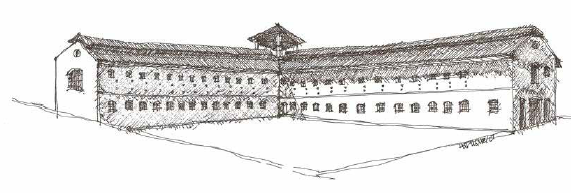Abstract
The city of Ibague, formerly called “Villa de San Bonifacio de Ibagué Valley of Spears” was founded in 1550 by the leading Spanish conquistador Don Andres Lopez de Galarza, who erects a population amid a forested region infested with native Pijaos that attacked several times, why you lose the colonial concept and only until 1800 retakes the character of population. It was declared republican city par excellence to 1850. At the end of this decade the impressive Panopticon building Ibagué, known building Greek cross plan, conceived in neo-Romanesque style, wall structure in masonry and complex pieces of roof trusses king it appears on your cover. This building created by William Blackwell under the administration of Manuel Casabianca, was intended to house prisoners and internees since 1892, use that extends until 2003. His intervention and restoration began in 2006 and today is still unfinished. For its monumental character and own language it is one of the most important heritage buildings not only of the municipal and regional level but also at national and continental levels.
Apuntes is registered under a Creative Commons Attribution 4.0 International Public License. Thus, this work may be reproduced, distributed, and publicly shared in digital format, as long as the names of the authors and Pontificia Universidad Javeriana are acknowledged. Others are allowed to quote, adapt, transform, auto-archive, republish, and create based on this material, for any purpose (even commercial ones), provided the authorship is duly acknowledged, a link to the original work is provided, and it is specified if changes have been made. Pontificia Universidad Javeriana does not hold the rights of published works and the authors are solely responsible for the contents of their works; they keep the moral, intellectual, privacy, and publicity rights.
Approving the intervention of the work (review, copy-editing, translation, layout) and the following outreach, are granted through an use license and not through an assignment of rights. This means the journal and Pontificia Universidad Javeriana cannot be held responsible for any ethical malpractice by the authors. As a consequence of the protection granted by the use license, the journal is not required to publish recantations or modify information already published, unless the errata stems from the editorial management process. Publishing contents in this journal does not generate royalties for contributors.


